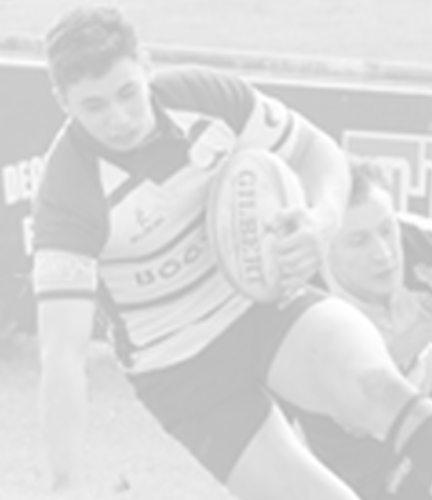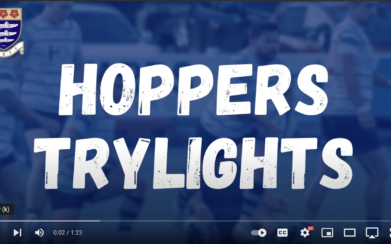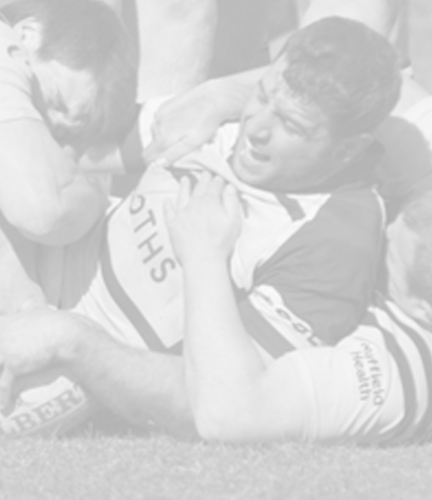Codes of Conduct
| THE GOOD PLAYER’S CODE |
Young players should recognise that many people in Rugby Union are working to provide a safe and enjoyable game in which they can develop both as a player and as an individual.
In Rugby Union players are encouraged to:
- Recognise and appreciate the efforts made by coaches, parents, match officials and administrators in providing them with the opportunity to play the game and enjoy the rugby environment
- Understand the values of loyalty and commitment to adults and team mates
- To understand that if an individual or group of young players feel that they are not being treated in a manner that is acceptable, they have the right to tell an adult either at the rugby club or outside of the game
In Rugby Union, as a young player, you should:
- Play because you want to not to please coaches or parents
- Remember skill development, fun and enjoyment are the most important parts of the game
- Be attentive at all training / coaching sessions
- Work equally hard for yourself and your team, both will benefit
- Check your kit to ensure you comply with the Laws
- Recognise good play by ALL players on your team and by your opponents
- Be a sportsman – win or lose
- Play to the laws of the game and accept, without question, all the referee’s decisions
- Control your emotions. Verbal or physical abuse of team-mates, opponents or match officials IS NOT ACCEPTABLE
- Treat all players as you would like to be treated. Do not interfere with, bully or take unfair advantage of any player
| THE DISCIPLINARY CODE |
Any report of misbehaviour by a player or coach, on the pitch or off it, will be considered by the Disciplinary Committee of the Mini Junior Rugby Executive Committee, with a report of the findings being forwarded to the main Disciplinary Committee of the club.
Players sent off by a referee, or coaches reported during a Mini, Junior or Senior Colts match should expect a report being made by the match official. Such reports are recorded against Senior Rugby’s disciplinary record, and Lancashire County RFU may also become involved.
Players and Coaches should recognise that matters related to incidents which occur away from the field of play may affect an observer’s perception of Preston Grasshoppers.
Misbehaviour on a coach could threaten the life of all those travelling.
Following any report received, the Mini Junior Executive will establish a panel to conduct an investigation and report thereon. Dependant on circumstances, this panel may include the designated ‘Person In Charge’ under the Child Protection provisions.
| THE GOOD PARENTS’ CODE |
In Rugby Union generally, and at Preston Grasshoppers in particular, coaches and administrators both fully acknowledge that parents are an integral part of the rugby partnership.
This ensures that our young players enjoy their involvement in the sport and experience an environment in which they can flourish.
In Rugby Union parents are encouraged to:
- Be familiar with the coaching and training programme in order that they can ensure that their child is fully involved and the coaches are aware of their availability.
- Be familiar with teaching and coaching methods used by observing the sessions in which your child participates.
- Be aware that the club has a duty of care and therefore, where appropriate, assist coaches with the supervision of the young players, particularly where numbers are large and there is a need to transport youngsters to away games.
- Be involved with club activities and share your expertise
- Share concerns with club officials
- Be familiar with the ‘Good Coaches’ Guide’. In particular:
-
- Coaches should recognise the importance of fun and enjoyment when coaching young players
- Coaches should keep winning and losing in perspective, encouraging young players to behave with dignity in all circumstances.
IT IS IMPORTANT THAT PARENTS SUPPORT COACHES IN INSTILLING THESE VIRTUES.
In Rugby Union parents should:
- Remember that young people play rugby for their own enjoyment not that of their parents.
- Encourage young people to play – do not force them
- Focus on the young player’s efforts rather than winning or losing
- Be realistic about the young players’ ability; do not push them towards a level that they are not capable of achieving
- Provide positive verbal feedback both in training and during the game
REMEMBER THAT PERSISTENT NEGATIVE MESSAGES WILL ADVERSELY AFFECT THE PLAYER’S AND REFEREE’S PERFORMANCE AND ATTITUDE.
- Always support Preston Grasshoppers in our efforts to eradicate loud, coarse and abusive behaviour from our game
- Remember that young people learn much by example
- Always show appreciation of good play by ALL young players both from our own club and the opposition
- Respect decisions made by the match officials and encourage the young players to do likewise
- Please come forward and volunteer to help in whatever way you can; if you can coach, do it! If you can referee, do it! If you can help in any way, do it! We can always use some assistance!
| THE GOOD SPECTATOR’S CODE |
Young rugby players are impressionable and their behaviour will often reflect that of the adults around them. In Rugby Union we welcome spectators on our touchlines who embrace the ethos of the game as one of FUN, ENJOYMENT and SKILL DEVELOPMENT.
In Rugby Union spectators are encouraged to:
- Act as positive role models to all young players
- Be familiar with, and abide by, the RFU Child Protection Guidance in relation to verbal and emotional abuse.
In Rugby Union spectators should:
- Remember children play sport for their enjoyment not yours
- Acknowledge good individual and team performance from ALL youngsters whichever team they play for.
- Respect match officials decisions. REMEMBER, they are volunteers providing an opportunity for youngsters to play rugby.
NEVER VERBALLY ABUSE YOUNG PLAYERS, MATCH OFFICIALS, FELLOW SPECTATORS OR COACHES. Such behaviour can create a negative environment for young players and their behaviour will often reflect this.
- Acknowledge effort and good performance rather than the ‘win at all costs’ ethic.
- Verbally encourage all youngsters in a positive way. If you do want to shout make sure that it is ‘for’, not ‘at’ the players.
- Condemn bad language, rude behaviour and violence.
- Encourage all youngsters irrespective of their ability – never ridicule any individual player, whichever team they play for.
Remember – “IT’S ONLY A GAME”.






































